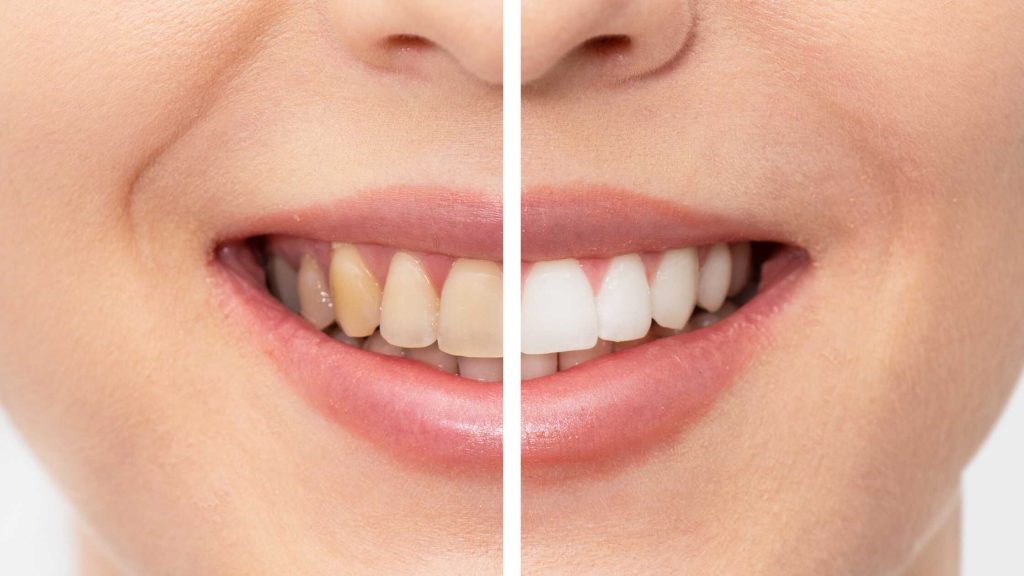Introduction
You are welcome to MyLifeSmiles! We think a happy, healthy smile can improve your self-esteem and general well-being. In-depth instruction on deep tooth cleaning, a vital component of maintaining oral health, is provided in this comprehensive tutorial. In order to produce a bright smile that makes an impact, our goal is to give you insightful information and practical advice.
Why Deep Cleaning Teeth Matters
1. UNDERSTANDING DEEP CLEANING
Periodontal scaling and root planing, often called deep cleaning, involves more than just normal brushing and flossing. It entails completely removing tartar and plaque accumulation from underneath the gum line. This procedure extends the life of your teeth and guards against gum disease.
2.THE BENEFITS OF DEEP CLEANING TEETH
Gum Health: Deep cleaning promotes the health of your gum tissue by preventing and managing illnesses of the gums like gingivitis and periodontitis.
Tartar Removal: It successfully gets rid of tough tartar that brushing by itself can’t, lowering the risk of decay and cavities.
Brighter Smile: Removing surface stains and discoloration results in a brighter and more confident smile.
Fresher Breath: Deep cleaning eliminates the bacterial source of bad breath, giving you a more pleasant breath.
Signs You Need Deep Cleaning
1.BLEEDING GUMS
It may be a sign of gum disease and a need for deep cleaning if your gums bleed while you brush or floss.
2.PERSISTENT BAD BREATH
Regular oral hygiene may help to reduce bad breath, but persistent bad breath may indicate bacterial infections that need to be treated by a professional.
3.GUM RECESSION
Deep cleaning is necessary to address receding gums or gums that are peeling away from your teeth in order to stop additional harm.
The Deep Cleaning Teeth Process
1.PROFESSIONAL EVALUATION
Your dentist will actually examine your mouth, looking for indications of gum disease, tartar buildup, and general tooth and gum health.
2.SCALING
Scaling is a procedure when tartar and plaque are removed from both above and below the gumline using specialized tools by your dentist or dental hygienist.
3.ROOT PLANING
To stop bacteria from reacting, the tooth roots are smoothed during root planing. This encourages gum healing and reattachment.
Aftercare Tips for Deep Cleaning Teeth
1.MAINTAIN ORAL HYGIENE
To stop plaque and tartar from forming in the future, keep up your regular brushing and flossing.
2.FOLLOW THE DENTIST’S RECOMMENDATIONS
To maintain healthy gums, your dentist may advise using antimicrobial mouthwash or a certain toothpaste.
3.REGULAR DENTAL VISITS
To keep your smile in peak condition and treat any potential issues right away, schedule regular dental checkups.
Achieving a Healthy and Bright Smile
You are actively working to preserve a healthy, dazzling smile by including deep cleaning as a crucial component of your oral care regimen. Remember that strong teeth and gums are the foundation of a confident grin. We at MyLifeSmiles are here to help you along the path to excellent oral health and a smile that brightens your life.
Tips for Preventing Tartar Buildup
1.BRUSH PROPERLY
Use a soft-bristled toothbrush and fluoride toothpaste. Use moderate circular motions to brush for at least two minutes twice a day.
2.FLOSS REGULARLY
However, by removing plaque and food debris from between teeth and along the gum line with floss, tartar is kept from forming.
3.RINSE WITH MOUTHWASH
Consider using an antimicrobial or fluoride mouthwash to reduce bacteria and strengthen enamel.
Foods that Promote Oral Health
1.CRUNCHY FRUITS AND VEGETABLES
Apples, carrots, and celery can assist in naturally deep-cleaning teeth by increasing saliva production and removing dirt.
2.Dairy Products
Calcium and phosphates, which build teeth and guard against decay, are abundant in dairy products like milk, cheese, and yogurt.
Lifestyle Habits for a Bright Smile
1.LIMIT SUGARY SNACKS
Limit your consumption of sweet foods and drinks to avoid plaque development, which can result in tartar formation.
2.QUIT SMOKING
In addition to discoloring teeth, smoking raises the possibility of developing gum disease. Your oral health will significantly improve if you quit.
3.STAY HYDRATED
By keeping your mouth moist and aiding in the removal of food particles, drinking water lowers your risk of plaque buildup.
How Often Should You Deep Clean Your Teeth?
Your specific oral health demands will determine how often you need a deep cleaning tooth. Based on elements such as your history of gum disease, plaque buildup, and the condition of your gums, your dentist will suggest a schedule.
The Confidence of a Healthy Smile
A radiant smile enhances your confidence and displays good oral health. You can have the alluring smile you’ve always wanted by getting deep cleaning teeth together with routine oral care procedures and a healthy lifestyle. Keep in mind that today’s investment in your dental health will pay you tomorrow with a happier, more self-assured you.
We at MyLifeSmiles are committed to assisting you in achieving your dental objectives. Consult with our specialists for individualized advice as you set out on your path to a more vibrant, healthier smile. We are here to support you each step of the way as you work to give your smile the best possible care.





